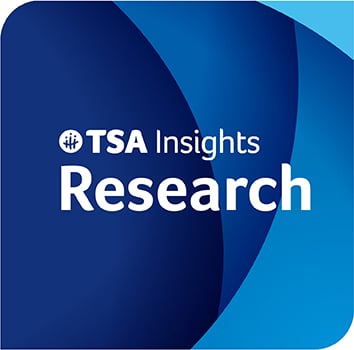Effectiveness and safety of everolimus in patients living with TSC
Tuberous Sclerosis Complex (TSC) commonly causes symptoms such as epilepsy, renal problems, and neuropsychiatric disorders. Everolimus, an mTOR inhibitor, has been studied for its potential to reduce tumour growth in TSC. Clinical trials have demonstrated promising outcomes in reducing tumour size and seizure frequency. However, the safety profile of everolimus includes potential adverse effects that may impact quality of life, requiring dosage adjustments or treatment interruptions. While previous randomized double-blinded placebo-controlled studies (such as EXIST-1–3) have shown promising results with tolerable side effects, there’s still limited evidence on how well these outcomes translate to real-world clinical practice. This study aimed to assess the effectiveness and safety of everolimus for treating TSC-related symptoms in real-world clinical settings.
About this study
The study aimed to evaluate how effective and safe everolimus is in real-world clinical settings for treating epilepsy, renal angiomyolipomas (AMLs), and subependymal giant cell astrocytomas (SEGAs) in people living with TSC.
How the study was conducted
The study included 64 patients living with TSC (with an average age of 19 years) from Norway and Denmark who were receiving everolimus treatment. 45 had epilepsy and 29 had AMLs. The average treatment duration was 31 months, with a range of 0 to 106 months. The study assessed seizure reduction, changes in anti-seizure medications, and the impact on AMLs and SEGA sizes. Adverse effects and laboratory abnormalities were also monitored.
Outcomes of the study
Epilepsy: Among the 45 epilepsy patients, 31% experienced a 50% or more reduction in seizure frequency in the last 3 months of treatment. A greater proportion of patients who were less than 18 years old (46%) experienced seizure reduction compared to those aged over 18 years (14%).
AML: In the 29 patients diagnosed with AMLs, everolimus demonstrated efficacy by reducing AMLs in 38% of cases and stabilizing the condition in 59% of patients. These effects were observed over an average treatment period of 37 months.
SEGA: Everolimus was given to 5 patients to treat SEGA. However, only 3 out of 5 patients were eligible for evaluation of the treatment. Among the 3 evaluated patients, SEGA volume decreased by 71%, 43%, and 48% after 39, 34, and 82 months, respectively.
Adverse events: Adverse effects were reported in 95% of patients, with oral ulceration (63%) and upper respiratory tract infections (38%) being the most common. Laboratory-detected abnormalities included increased elevated cholesterol (41%), iron deficiency (30%), and low white blood cell count (25%). Grade 3–4 (severe, medically serious) adverse effects were reported in 36% of cases, and life-threatening conditions were reported in 2 patients. Nine patients discontinued everolimus treatment during the study.
Conclusions of the study
Seizure reduction in the study was consistent with the previous EXIST study results, but the rate may be affected by changes in other anti-seizure medications being given at the same time. Younger age was associated with better seizure reduction. Everolimus effectively reduced or stabilized AML size in most patients, and SEGA volume was reduced in all 3 patients. Close follow-up, particularly for children and patients unable to report adverse effects, is recommended.
Implications of the study
This study suggests that everolimus is effective in reducing seizures and stabilizing or reducing AMLs and SEGA sizes in patients living with TSC in real-world clinical practice. However, careful monitoring is essential due to the high prevalence of adverse effects, especially in younger patients and those who may have difficulty reporting side effects. The findings support the need for ongoing surveillance and management of patients receiving everolimus treatment.
Cockerell, I., Christensen, J., Hoei-Hansen, C. E., Holst, L., Grenaa Frederiksen, M., Issa-Epe, A. I., Nedregaard, B., Solhoff, R., Heimdal, K., Johannessen Landmark, C., Lund, C., & Nærland, T. (2023). Effectiveness and safety of everolimus treatment in patients with tuberous sclerosis complex in real-world clinical practice. Orphanet journal of rare diseases, 18(1), 377.
Full paper available at: https://doi.org/10.1186/s13023-023-02982-1
DISCLAIMER
This information is intended to provide some insights into recent TSC-related research. It is not intended to, and it should not, constitute medical or other advice. Readers are warned not to take any action without first seeking medical advice.

